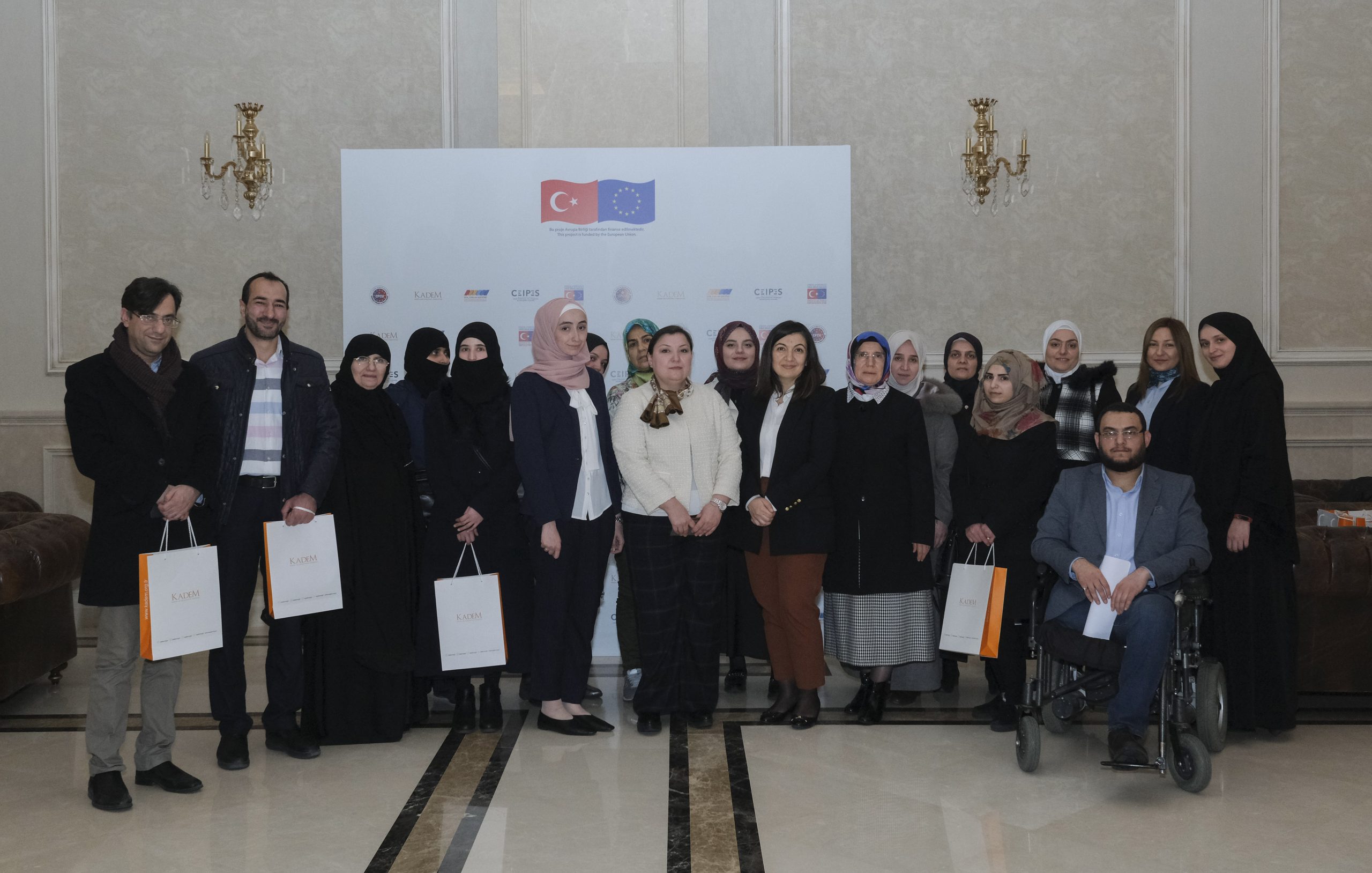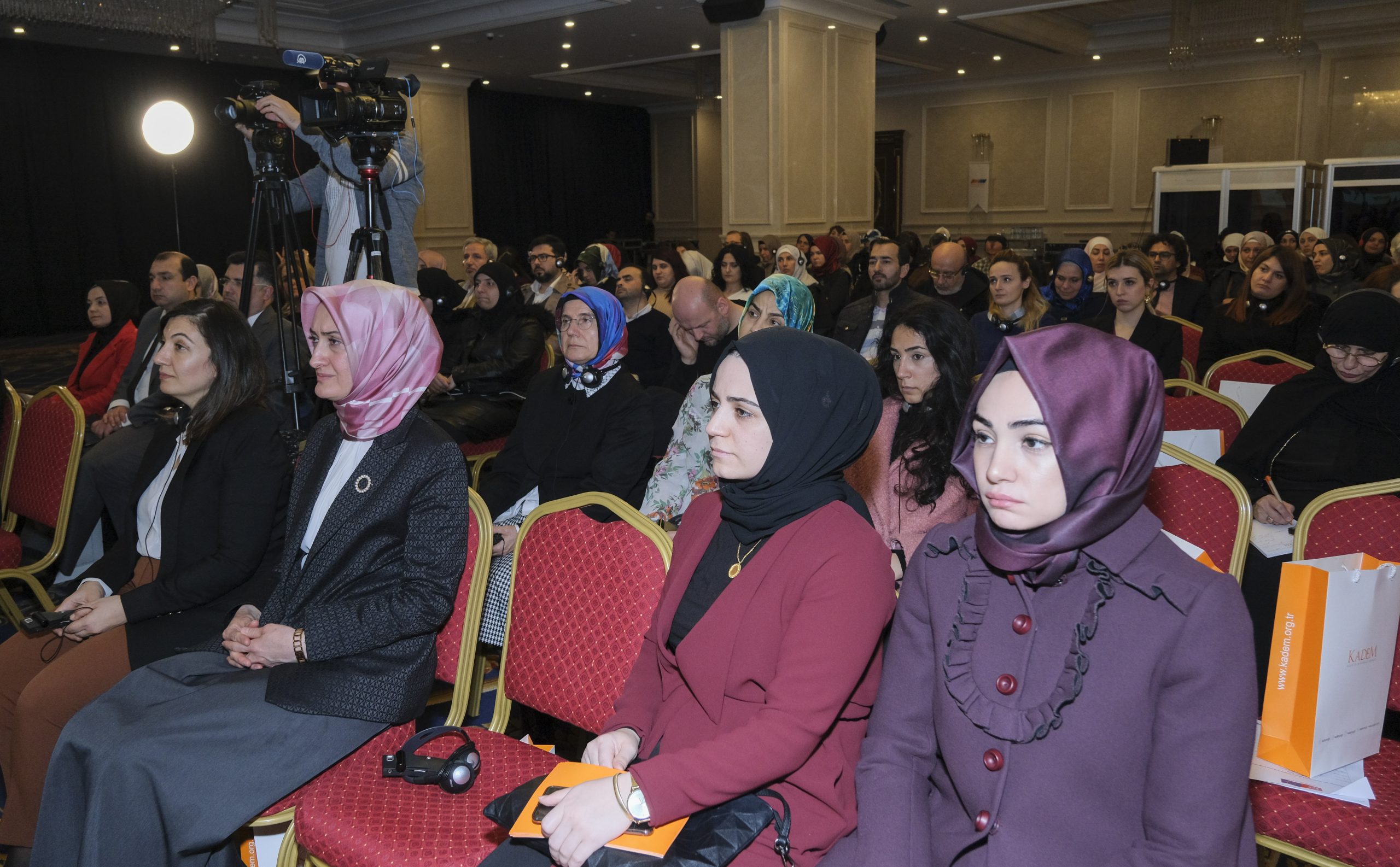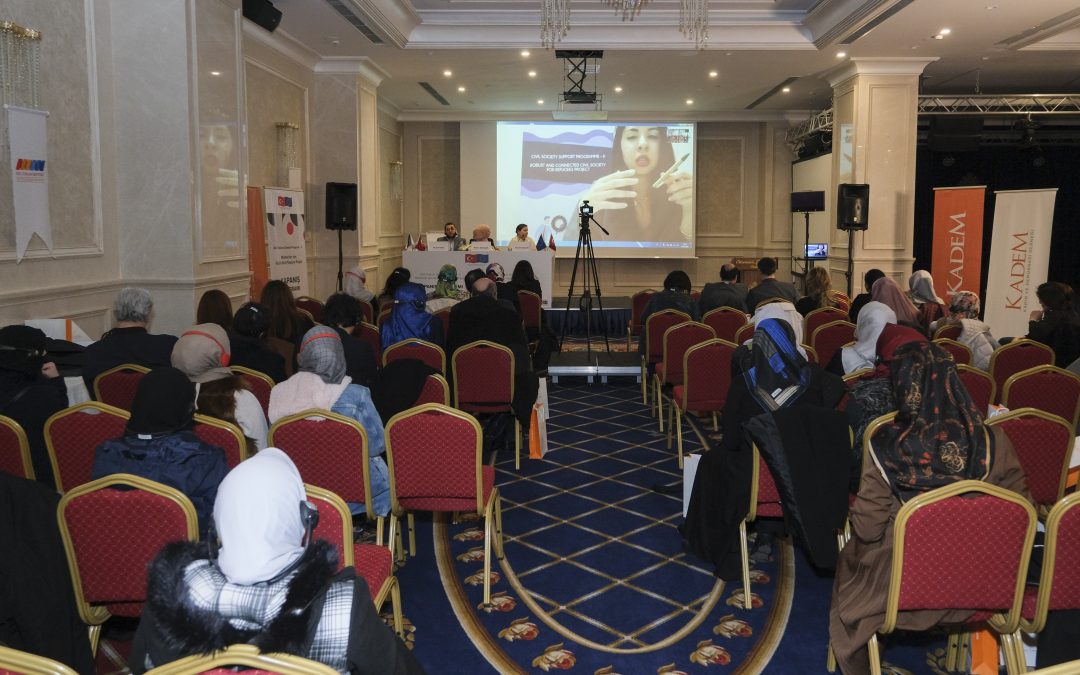The 27th of February 2020, in Istanbul, Turkey, the coordinator of the “Robust and connected civil society” project, KADEM organized a Conference with several participants including Turkish and Syrian Ministers. CEIPES was invited also to present the results of success indicators. Unfortunately, because of the Coronavirus, it was impossible for us to attend the conference physically, so we participated through a Skype call.
The Conference had the aim to present to everyone the project, results and improvements achieved in these 24 months of hard work.
The Conference started with an opening speech of the President of KADEM and Women Democracy Association and one EU expert of the Ministry of Foreign Affairs, Turkey, Directorate of EU affairs.
Then, Project coordinator made a presentation about project activities, what is being done during the project: training, workshop, cooperation meetings between public authorities and NGOs’ representative.
We presented our results of the success indicators. Last November in Istanbul, CEIPES staff conducted a capacity building training to CSOs on “Fundamentals of Management for Non-Profit Organization”. In month of December, CEIPES realized a questionnaire in order to understand the degree of satisfaction of the participants of the training. Actually, the real aim of the training was to understand how efficient the training was.
In the month of January, our partner distributed the questionnaire. CEIPES made a comparison of these results and we realized that there was an important improvement from the need analysis.
These success indicators show us the achievements that organizations reached thanks to the capacity building training to Civil Society Organizations.
Considering 27 organizations, 24 for of them reach a good score that allow us to consider them properly Non-Profit Organizations with a good and stable structure in almost every field.
From this analysis we realized that two organizations need more efforts to improve their capacities above all in the financial management field. Just one organization has a score very low. In our opinion, this means that the training was not sufficient for them and this organization has not an adequate organizational structure. All these problems can be easily fixed through trainings, improvement of human resources and/or the influence of external experts.
To conclude, CEIPES realized a capacity building toolkit and mentoring of 60 pages to develop relevant performance indicators. The toolkit implemented the same programme of the training and has the final aim to make this information useful for all the civil society organizations that work with asylum seekers. The toolkit is important because it wants to build capacities these CSOs in long-term strategic planning, human resources and financial management, identifying performance criteria and monitoring of performance, gender equality, gender sensitive budgeting, diversifying financial resources, sustainability, accountability and transparency, lobbying and advocacy, reaching out to volunteers, will support development of civil society and contribute in making their activities related to asylum seekers more effective, sustainable and coherent.
KADEM and CEIPES worked very well together realizing all the results preset at the beginning.
This is the reason why CEIPES want to thank KADEM for choosing us. We hope that we can collaborate again together in the future.


